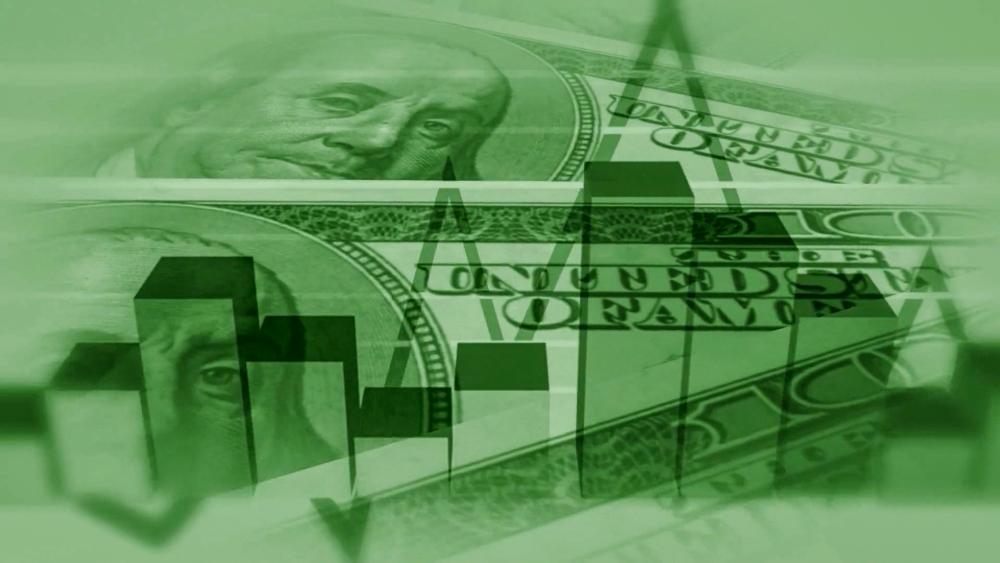When asked whether a Federal Reserve or Central Bank Digital Currency might be on the horizon, Federal Reserve Chairman Jerome Powell told a congressional committee this year, "We're nowhere near recommending or let alone adopting a central bank digital currency in any form."
While Powell admits that while the central bank continues to work on a digital currency, he realizes the obstacles to success at the present time are insurmountable.
For starters, the Fed knows a Central Bank Digital Currency or CBDC could wreck the nation's banking industry, threaten the dollar's status as the world's reserve currency and even threaten the Fed itself.
Financial Expert Nick Anthony of the CATO Institute and author of Digital Currency or Digital Control?, says CBDCs don't do much of anything well, except spy on you and control your money.
Anthony says the government can't be trusted with CBDCs "...because they're so ripe for abuse. The government would have Americans' data by default. It would be on their servers, a click away."
Digital money could be programmed for use only toward certain purchases, at certain times, or with an expiration date. It could also be used to manage the economy, such as encouraging spending by charging negative interest on those who don't spend.
It could also be turned off, like how the Canadian government froze hundreds of bank accounts to stop the Canadian truckers' blockade over Covid restrictions.
***Please sign up for CBN Newsletters and download the CBN News app to ensure you keep receiving the latest news from a distinctly Christian perspective.***
"Programmability has been something that many central banks and many governments have been looking into where payments could be programmed or the money itself could be programmed," Anthony says. "It's really only limited by the 'creativity' of government officials."
Americans already have digital money, from credit and debit cards to apps like PayPal and cryptocurrency.
In addition to competing directly with those financial tools, a Central Bank Digital Currency would be able to divert funds that private banks need to survive.
Anthony says, "If we think about the current banking system where deposits come in and then banks use those deposits to fund loans, a CBDC poses a fundamental threat to that. Where every dollar that's held as a CBDC instead of in a savings account, for example, would mean that that's a dollar less that the banking system can use."
A digital dollar would also be much more than the Federal Reserve, with its 20,000 employees, could handle. The Fed would have to take on the credit risks of hundreds of millions of Americans as well as all the legal responsibilities the private banking sector currently handles. And if you've ever stood in line at a DMV, you can imagine just how badly the government could mess it all up.
The Eastern Caribbean Central Bank's experiment with what it called "DCash" was a small disaster. A single computer glitch made the currency unusable for months.
And do Americans want to entrust even more of their financial information to the government given the Fed has been hacked several times in the past and leaked sensitive data about financial firms just last year?
While there is talk of a "privacy enhanced" CBDC, Anthony points out that this is the same federal government that's already looking through your bank account.
"Many Americans, unfortunately, wrongly believe that their financial information is protected by the Fourth Amendment (against illegal search and seizure)," Anthony says. "In reality, the government has almost unfettered access into who you are and what you're doing because it requires banks and other financial institutions to routinely report your financial activity."
Some argue the government will eventually be forced to issue a CBDC to ensure the dollar remains the world's leading reserve currency. Technology, however, has nothing to do with the dollar's dominance. It's based on our rule of law, financial transparency, and capital markets.
A badly managed CBDC though could cause other nations to ditch the dollar.
This doesn't mean a digital dollar won't happen one day. Controlling people's money is, after all, the ultimate instrument of government control. But Chairman Powell admits the Fed hasn't yet figured out how to make one work, telling Congress, "People don't need to worry about a Central Bank Digital Currency. Nothing like that is remotely close to happening anytime soon."
Did you know?
God is everywhere—even in the news. That’s why we view every news story through the lens of faith. We are committed to delivering quality independent Christian journalism you can trust. But it takes a lot of hard work, time, and money to do what we do. Help us continue to be a voice for truth in the media by supporting CBN News for as little as $1.












 Support CBN News
Support CBN News







